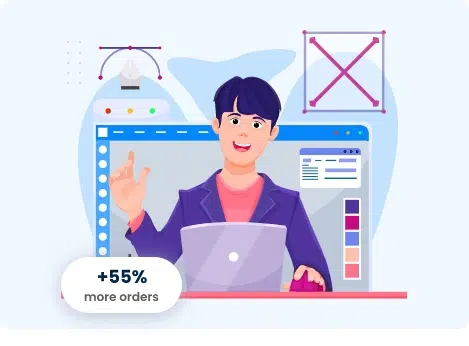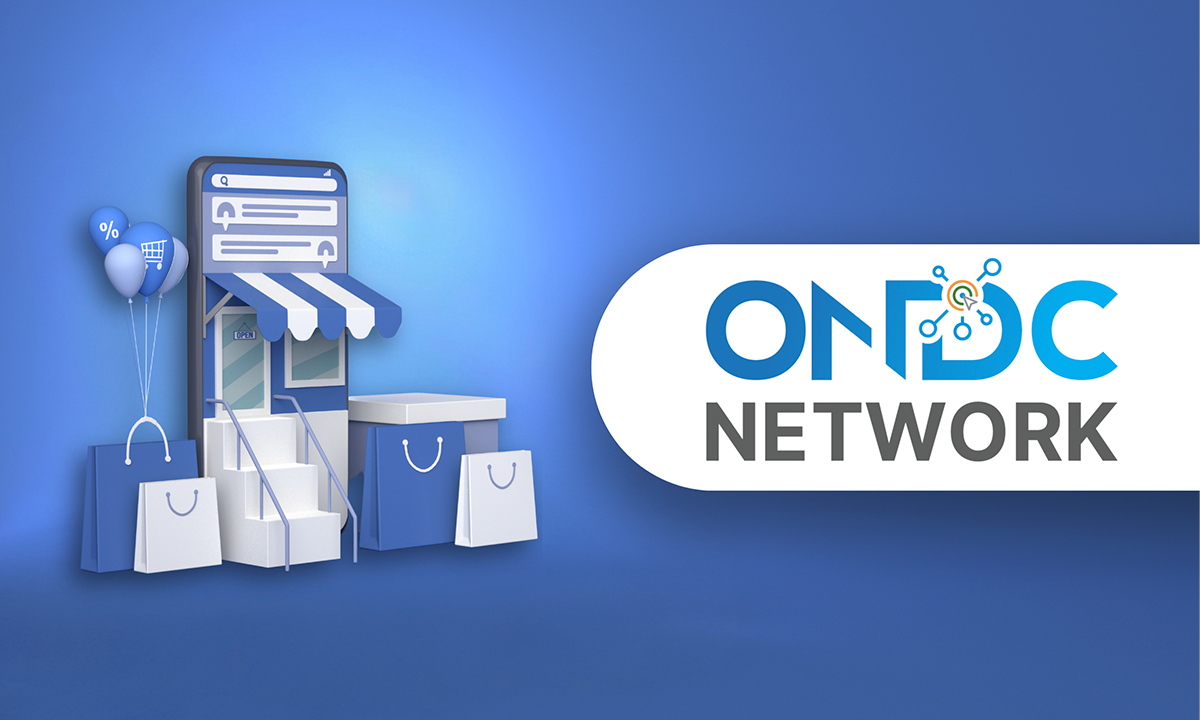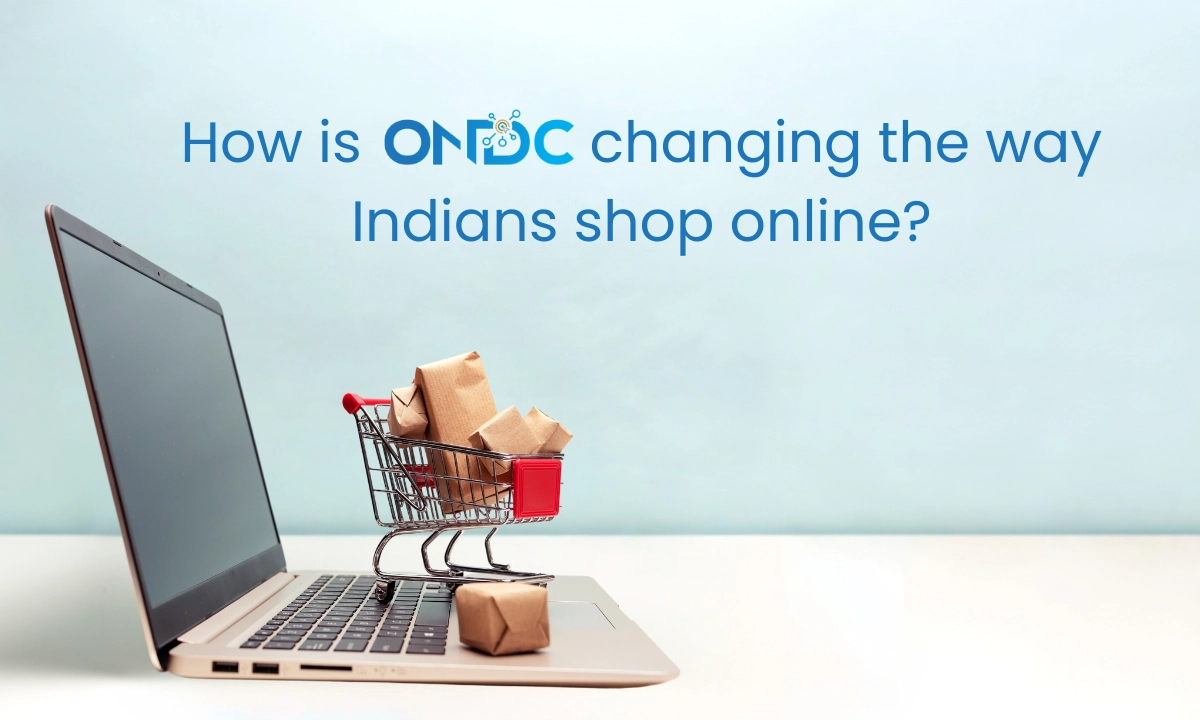Social media has become an integral part of our daily lives, and it has also become a powerful tool for businesses to reach their target audience. eCommerce businesses, in particular, have been leveraging social media platforms to expand their reach, drive sales, and build a loyal customer base.
In this blog, we will explore the power of social media for eCommerce and how to leverage different platforms to boost your business.
Take your business online with Unizap. Get your free online store in 30 seconds.
Social Media Marketing for eCommerce
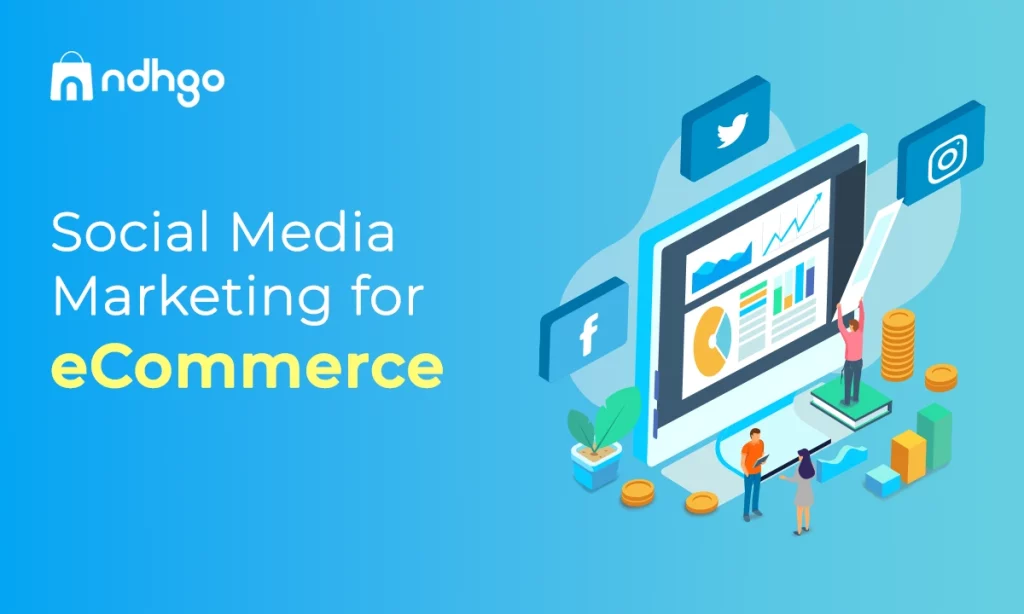
Social media marketing is the use of social media platforms to promote a product or service. For eCommerce businesses, social media marketing can be a powerful tool to reach a wider audience, generate leads, and drive sales.
The most popular social media platforms for eCommerce businesses are Facebook, Instagram, Twitter, and Pinterest.
Facebook Advertising for eCommerce
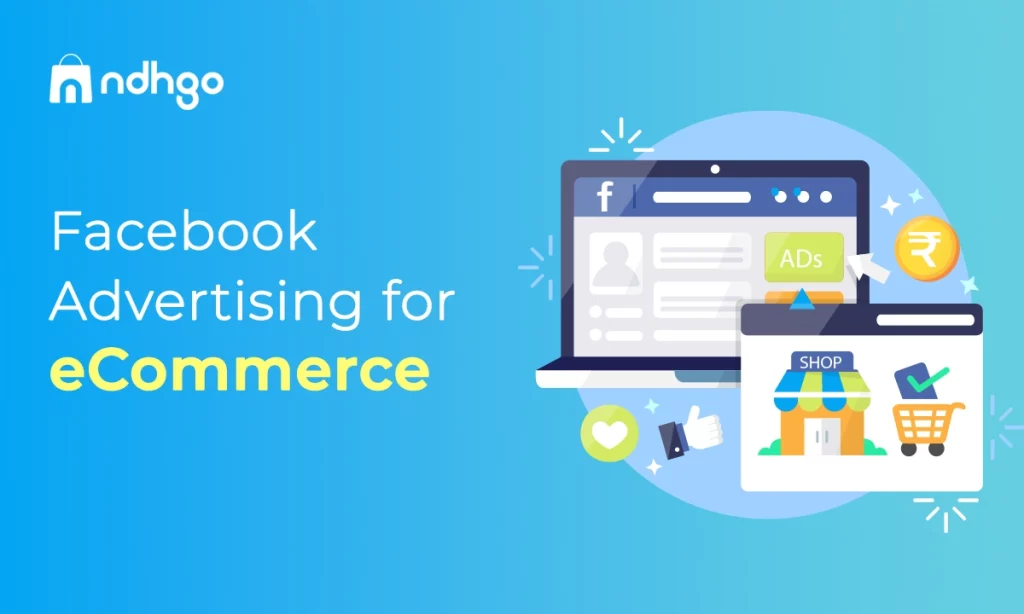
Facebook is the most popular social media platform with over 2.8 billion active users. Facebook advertising is the use of Facebook’s advanced targeting features and a wide range of ad formats to promote a product or service.
For eCommerce businesses, Facebook advertising can help drive traffic to their site, increase brand awareness, and generate leads. Facebook offers several ad formats, including carousel ads, video ads, and collection ads, specifically designed for eCommerce businesses.
Instagram Marketing for eCommerce
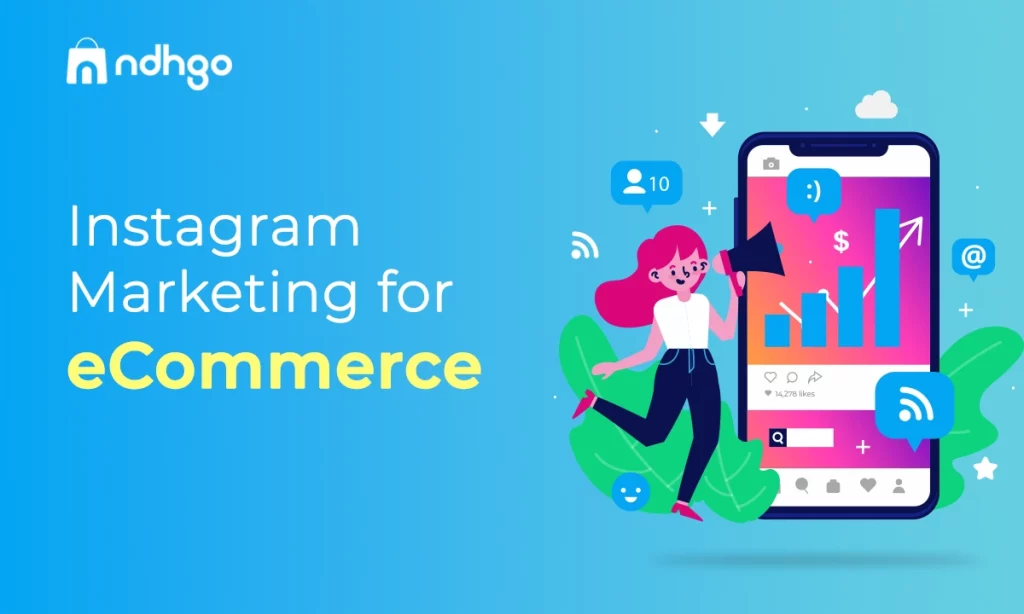
Instagram is a visual-based social media platform with over 1 billion active users. eCommerce businesses can use Instagram to showcase their products through organic posts and ads. Instagram offers several features, such as Shopping Tags and Story ads, specifically designed for eCommerce businesses. Instagram influencers can also be a powerful tool for eCommerce businesses to reach a wider audience and build brand awareness.
Influencer Marketing for eCommerce
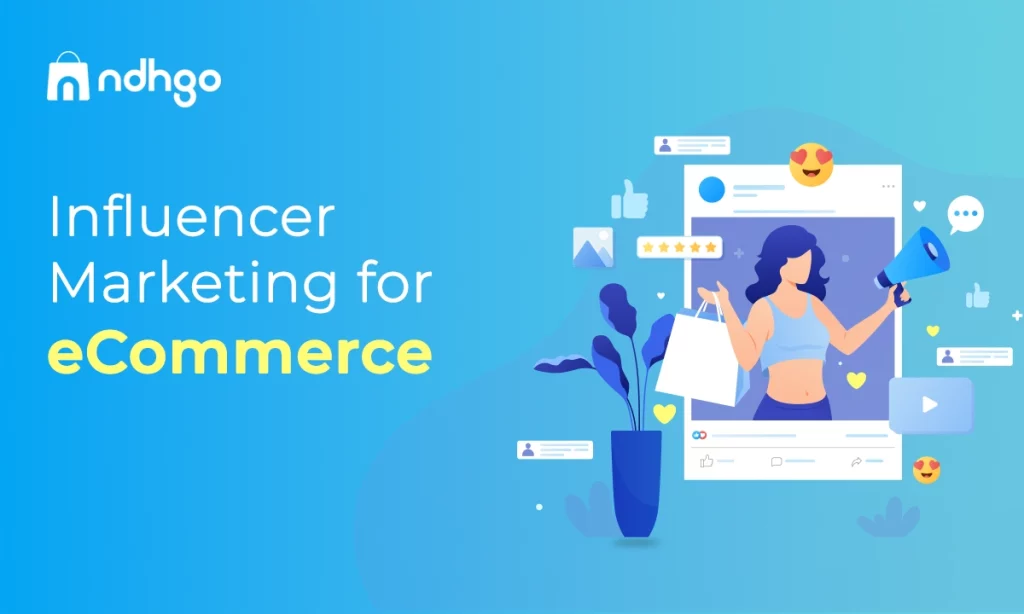
Influencer marketing is the use of social media influencers to promote a product or service. Influencer marketing can benefit eCommerce businesses by reaching a wider audience and building brand awareness. When choosing a social media influencer, it’s essential to consider their audience demographics, interests, and values to ensure that they align with your target market. Micro-influencers, with a smaller following but high engagement rates, can also be an effective option for eCommerce businesses.
Social Commerce for eCommerce
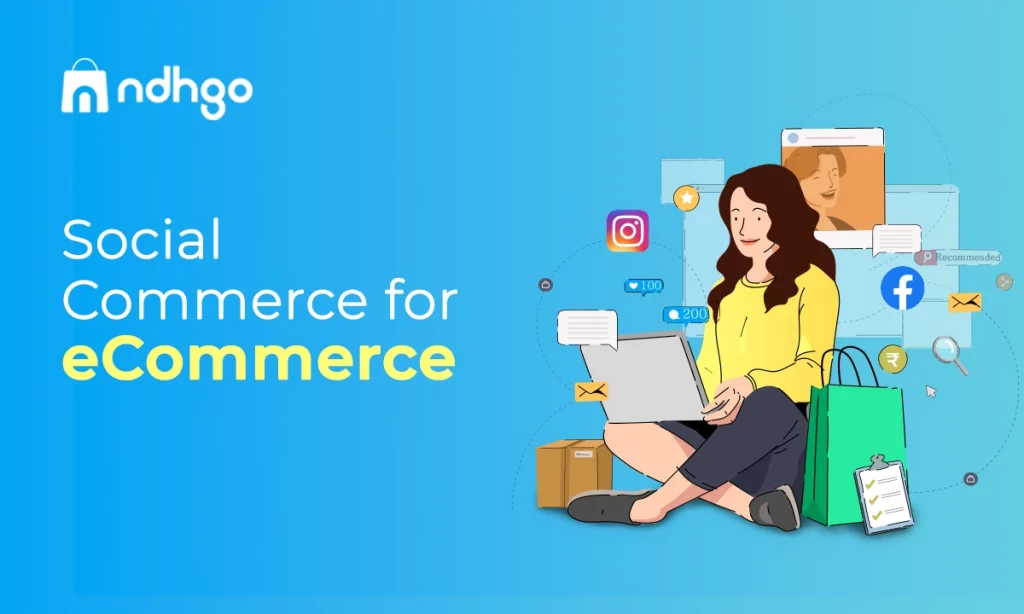
Social commerce is the integration of eCommerce with social media platforms. Social commerce can benefit eCommerce businesses by making the purchasing process more seamless and convenient for customers. Social commerce features, such as Facebook Shops and Instagram Checkout, allow customers to browse and purchase products directly from social media platforms.
Best Practices for Social Media Marketing for eCommerce
To make the most out of social media marketing for eCommerce, businesses should follow these best practices:
Post consistent, high-quality content:
Consistent posting with high-quality content can help build a loyal customer base and increase engagement rates.
Use engaging visuals:
High-quality visuals, such as product images and videos, can help grab the attention of your target audience.
Target the right audience:
Targeting the right audience based on demographics, interests, and behaviors can help drive sales and generate leads.
Engage with your audience:
Engaging with your audience through comments and direct messages can help build a relationship with your customers and increase brand loyalty.
Measure your results:
Tracking metrics such as engagement rates, conversion rates, and ROI can help eCommerce businesses measure the success of their social media marketing efforts.
Conclusion
Social media has become a powerful tool for eCommerce businesses to expand their reach, drive sales, and build a loyal customer base. Leveraging different social media platforms, such as Facebook, Instagram, Twitter, and Pinterest, can help eCommerce businesses reach their target audience and achieve their business goals. By following best practices for social media marketing, eCommerce businesses can make the most out of their social media efforts and stay ahead of the competition.
FAQ’s
Social media marketing is the use of social media platforms to promote a product or service. It can benefit eCommerce businesses by expanding their reach, driving sales, and building a loyal customer base.
The most popular social media platforms for eCommerce businesses are Facebook, Instagram, Twitter, and Pinterest.
Facebook advertising is the use of Facebook’s advanced targeting features and a wide range of ad formats to promote a product or service. It can help eCommerce businesses by driving traffic to their site, increasing brand awareness, and generating leads.
eCommerce businesses can use Instagram to showcase their products through organic posts and ads. Instagram offers several features, such as Shopping Tags and Story ads, specifically designed for eCommerce businesses.
Influencer marketing is the use of social media influencers to promote a product or service. It can benefit eCommerce businesses by reaching a wider audience and building brand awareness.
When choosing a social media influencer, it’s essential to consider their audience demographics, interests, and values to ensure that they align with your target market.
Social commerce is the integration of eCommerce with social media platforms. It can benefit eCommerce businesses by making the purchasing process more seamless and convenient for customers.
Best practices for social media marketing for eCommerce businesses include posting consistent, high-quality content, using engaging visuals, targeting the right audience, and engaging with your audience through comments and direct messages.
eCommerce businesses can measure the success of their social media marketing efforts by tracking metrics such as engagement rates, conversion rates, and ROI.
The frequency of social media posting for eCommerce businesses may vary depending on the platform and audience. However, posting at least once a day on Instagram and Facebook and a few times a week on Twitter and Pinterest is recommended.


